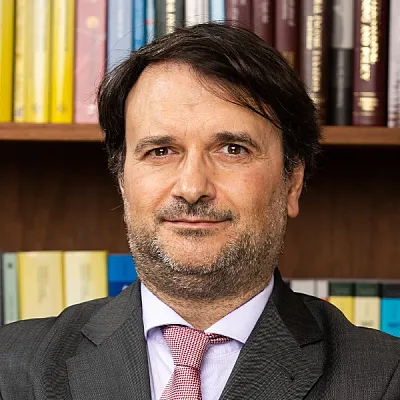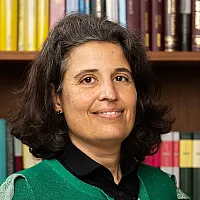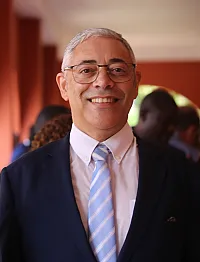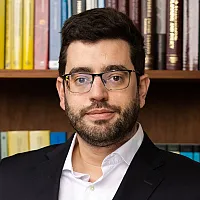Research Groups
Group II: Globalization, Competition and Development
The Group is organised to explore and develop policy and legal solutions for legal solutions regarding the access to natural resources, the effects of international trade on the sustainability of natural resources, the environmental impact of resource trade and the price of volatile resources, considering the challenges faced by EU Member States, BRICs, developing countries (especially Lusophone) and the US.
Their research is dedicated to fostering a more integrated and coherent development of projects in the field of human rights, wealth, and income inequality in the world more effective. This is in response to the challenges imposed by the climate crisis on the international economy, the economic and security implications in the context of war, and how government intervention influences economic growth.
This group is coordinateed by Prof. Dr. Pedro Infante Mota.
Projects
Accordingly, this Group will cooperate and simultaneously develop the follwoing projects:
It is evident to the main political leaders worldwide that there can be no winners or profits in a nuclear war and, because of that, the “weapon of trade” has increasingly come to be seen as an attractive alternative to force military and often associated with issues of national security and foreign policy, especially from the end of the Cold War.
With this project we will “weaponized interdependence”.
More project information: https://www.cideeff.pt/en/initiatives/geoeconomics/6360/
Duration: 2026-2029 (36 months)
Forthcoming
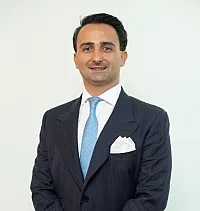
Prof. Doutor Filipe de Vasconcelos Fernandes
Patrícia Bastos
Márcio Bobik
António Chuva (Universidade de Maputo)
As labor standards in many developing countries are low and rich countries face increasingly intense competition from countries that practice lower wages, the issue of workers' rights is today at the center of the political debate concerning globalization and global economic governance. The European Commission itself defended as early as 1994, in the white paper Growth, Competitiveness and Employment, as one of the causes of the high structural unemployment existing in the Community the fact that “new countries are industrializing, starting to appear as competitors, even in our markets, with costs that challenge any competition on our part.”
More project informations: https://www.cideeff.pt/en/initiatives/labour-rights-and-international-economic-law-a-multilevel-approach/6359/
Duration: 2025 - 2029 (60 months)
Project status: Ongoing
Salvador Laurino

Prof. Doutor Filipe de Vasconcelos Fernandes
Patrícia Bastos
Márcio Bobik
António Chuva (Universidade de Maputo)
Emerging economies typically struggle with the establishment and implementation of regulatory tools. In the last few years, however, there has been significant progress with the full incorporation of regulatory entities, including competition and sector regulation.
Regional economic organizations are also pushing for these developments, what ads a layer of complexity.
For instance, the Common Market for Eastern and Southern Africa (COMESA) is implementing a suspensive merger control regime, that will certainly be a game changer, and the African Continental Free Trade Area (AfCFTA) is also aiming to have regulatory bodies.
The main goal of this project is to determine where we are at in what, what are the main difficulties / shortcomings and what are the adequate solutions in terms of regulation for rather incipient an immature markets, looking to attract investment.
More project information: https://www.cideeff.pt/en/initiatives/economic-regulation-in-emerging-countries-models-regional-integration-and-the-case-of-portuguese/6373/
Duration: 2024-2028
Project status: Ongoing
Gabriel Ambrósio Umabano
This project aims to analyze and describe the functioning of Economic Community of West African States (ECOWAS), a regional integration organization, pointing out successes and failures.
We will analyze and describe the:
- Organization’s institutional framework;
- Policies developed by the organization;
- Adoption of legislative acts;
- Degree of integration of this organization.
The project involves the participation of professors and researchers from the University of Lisbon School of Law and the Faculty of Law of Bissau (Guinea-Bissau).
For more project information: https://www.cideeff.pt/en/initiatives/economic-community-of-west-african-states-ecowas/6363/
Duration: 2024-2026 (36 months)
Project status: Ongoing
João Mendes Pereira
Gabriel Ambrósio Umabano
Evaristo Vieira
Armando Sumba
The Global South is facing serious problems in terms of over-indebtedness and difficulties in negotiating and restructuring its debts, jeopardising short-term financing as well as the financing of critical development sectors such as health, education and infrastructure, economic growth and development. The phenomenon of shrinking financing is affecting several countries and regions in the Global South, and even financing from China has been reduced.
The research objective focuses on the causes (e.g. inflation, restrictive monetary policies, exchange rate depreciations, deterioration in the terms of trade) and consequences (e.g. stagflation, recession, danger of non-compliance with the SDGs) that the contraction of financing can cause in many countries and regions of the Global South, as well as initiatives carried out in the Global South with an impact on the world economy.
For more information: https://www.cideeff.pt/en/initiatives/the-global-south-development-financing/6364/
Duration: 2024 - 2026 (36 months)
Project status: Ongoing
This project will lead to the publication of an open access online book and supporting materials aimed for practitioners (lawyers and judges), legislators and researchers wishing to understand the empirical reality of civil popular actions in Portugal.
It will tackle the absence of primary and secondary sources on this topic that can serve as basis of information for how courts have decided issues, for the statistical realities of this type of cases, from the broadest issues (how many cases) to narrower points of great practical importance (success rate, rate of dismissal at preliminary stage, etc.).
For more project information: https://www.cideeff.pt/en/initiatives/acoes-populares-civeis-em-portugal-analise-juridica-empirica-e-economica/6362/
Duration: 2025 - 2028 (36 months)
Project status: Ongoing
Nuno Salpico (FDUL)
José Sá Reis (FDUP)
Francisco Pinto Dias (FDUC)
Baltazar Oliveira (FDUL)
Empirical analysis of the degree to which the legal orders of the EU and Member States have been and are capable of leading to consumer redress for mass infringements
At least since 2013, the EU legislator has recognized that consumer redress in Europe is seriously lacking, and that there are important structural defects preventing it from succeed. Its most recent attempt at contributing to the solution of this enforcement gap was the adoption of the Representative Actions Directive. However, such efforts have not been preceded (nor followed) by empirical studies of the realities of consumer redress in the various European States. Without such empirical knowledge, it is impossible to identify the factors with allow or prevent the success of consumer collective redress for mass infringements.
The limited empirical studies available, mostly limited to some States and to certain areas of the law, show an extremely bleak scenario where consumer redress for mass infringements is so exceptional as to be negligible, all over Europe. And yet, recent legal reforms and practical changes in some States are raising the possibility that this scenario may change. The goal of this research is to provide a scientifically sound empirical basis for decision makers to base their decisions on the operationalization and optimization of consumer collective redress, but also to allow for transparency and greater democratic oversight of the legislative options which lead to the current status quo.
For more project information: https://www.cideeff.pt/en/initiatives/collective-consumer-redress-in-europe/6361/
Duration: 2024-2026 (36 months)
Project status: Ongoing
This research project is aimed at, on a first level, gathering, divulging, and analysing all the case-law of Portuguese courts which has applied, or which has discussed the application of national or EU competition rules, within public enforcement or private enforcement, in all the areas of this branch of the law.
The database can be accessed at https://juriscomp.pt/pt-pt.
For more information: https://www.cideeff.pt/en/initiatives/juriscomp/6136/
Duration: 2020-2024 (48 meses)
Project status: Ongoing

Catarina Barreirinho
It has been adopted recently the Arms Trade Treaty and there are several goods whose trade is controlled. This project aims to understand why these products are controlled – whether it’s because of its strategic importance (like uranium, e.g.) or/and its possible doble use (some chemicals) – and understand the interaction between the World Trade Organization in managing some very real public policy challenges, specially, his relationship with the Paris Agreement on Climate Change.
Projects and results: https://www.cideeff.pt/en/initiatives/international-trades-and-the-security-exception/6358/
Duration: 2018-2021 (24 months)
Project status: Closed
Despite being “the big buzzword of our times”, the truth is that there is still a great lack of knowledge about the causes and effects of globalization. For example, we often hear about the "Americanization" of our way of life, but few people know that the United States ranks very poorly in what is the most popular composite index of globalization used in academic literature (the so-called KOF Index); the big surprise of some rich country governments when they discovered their dependence on China for some medical equipment, etc.
Project and results: https://www.cideeff.pt/en/initiatives/globalization-economic-causes-and-effects/6357/
Duration: 2020-2022 (24 months)
Project status: Closed
It is estimated that the GPA 2012, which entered into force on 6 April 2014, is applicable annually to markets currently valued at 1.7 billion of US dollars. GPA 2012 is increasingly at the center of global efforts to promote the liberalization of public procurement markets and the effectiveness of solid rules and the principle of non-discrimination, despite the many limitations and exceptions, has gradually played a relevant role. in such efforts. And since much of the world's growth over the years futures will be generated outside European territory and that more than 50 billion of US dollars could be spent on infrastructure around the world in the next 15 years, it is crucial to pay attention added to the GPA 2012, the largest legally binding agreement to regulate public procurement worldwide.
Project and results: https://www.cideeff.pt/en/initiatives/global-public-procurement/6356/
Duration: 2020-2023 (36 months)
Project status: Closed
